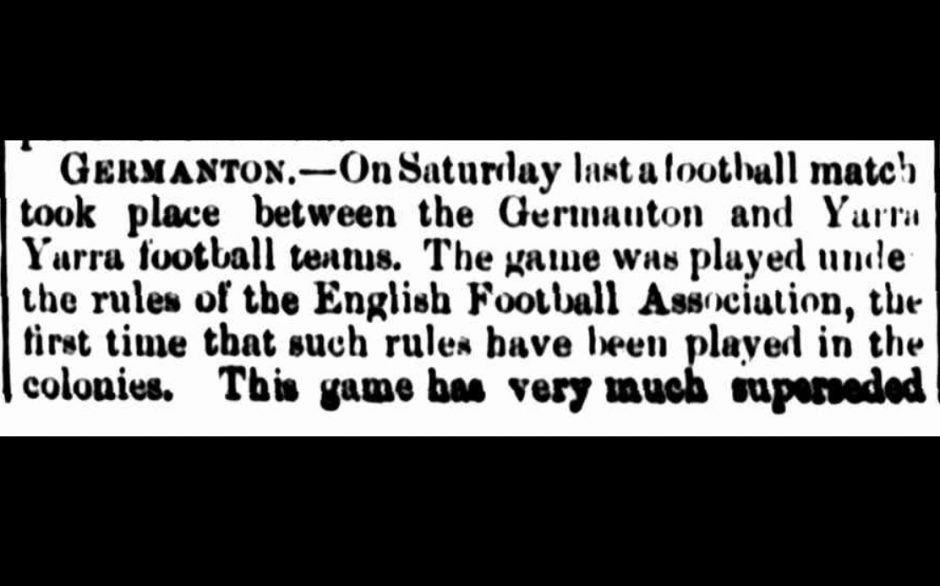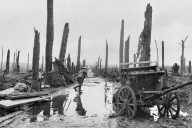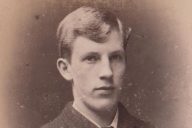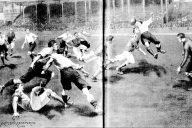REVEALED: The earliest confirmed game of Association Football in NSW was played 1878, not 1880.
History is not fixed. It is ever shifting. The past will always reveal something new and then another history will be rewritten only for it to be rewritten again and again until the end of time.
Yesterday, Garry McKenzie, one of Australia’s finest sporting history detectives, made one of the most significant discoveries in Australian sporting history. A confirmed game of Association Football in New South Wales which predates the well known Wanderers vs Kings School match of 1880.
“Following vigorous debate in the Sydney press, a game was organised that has been celebrated, however contestably, as soccer’s centenary in Australia. This was the match according to FA rules played on the Saturday afternoon of 14 August, 1880, between King’s School and and XI who would shortly afterwards be called The Wanderers, the first association football club in Australia to establish itself and last beyond a few games.” – Roy Hay and Bill Murray, A History of Football in Australia.
Hay and Murray correctly observed that the 1880 game can be seen as “the first formal and lasting foundation of the round ball code in Australia.” From here you can trace a continuous, if somewhat chaotic, history to the present day. (I recommend Philip Mosely’s Soccer In New South Wales 1880 – 1980 for further reading in regards to the 1880 match.)
There are also outliers that predate the historic 1880 match. In the 1870s, the rules of English Football Association were known to schools, football clubs and even newspapers. Editorials advocated for its introduction to supplant the “violent” and “barbaric” codes of Rugby and Australian (Victorian) Rules football. And no doubt matches were attempted. For example, Ian Syson uncovered an 1875 game where the ball wasn’t handled or carried between the inmates and warden at a lunatic asylum in Goodna, Queensland. He also found an 1879 scratch game in Tasmania between New Town and Cricketers under “English Association” where the obligation to leave hand idle and the mysteries of the offside rule proved almost insurmountable for the players.
Which brings us to Garry McKenzie’s amazing discovery in the darkest digital recesses of Trove’s invaluable newspaper archive.
The game was played in the town of Holbrook, a small town in Southern NSW formerly known as Germanton, on August 17, 1878, between Germanton and Yarra Yarra football teams.
“The game was played under the rules of the English Football Association, the first time that such rules have been played in the colonies.”
What make it significant is that it was the first recorded match involving players who were familiar with and skilled at the game.
A remarkably thorough account of the match was published in the The Albury Banner and Wodonga Express on August 24, 1878.
GERMANTON.— On Saturday last a football match took place between the Germanton and Yarra Yarra football teams. The game was played under the rules of the English Football Association, the first time that such rules have been played in the colonies. This game has very much superseded the Rugby (Sydney) game in England, its chief feature being that the ball must on no occasion be touched with the hand. Everything thus depends on the clever working of the ball with the foot alone. It is played with eleven a side. Yarra won the toss, and kicked off against the wind, and a very even game ensued. Shortly after commencing Germanton handed the ball through their opponents’ goal, after sharply running it up from the middle of the field. Yarra claimed a foul on account of the “hand,” and consequently the goal was disallowed, to the evident dissatisfaction of some of the Germanton players. Jas. McLaurin then dribbled the ball well up the side, and passed to Morrison (the Yarra captain) in the centre, who brought it well into the mouth of the Germanton goal; and there the Yarra forwards, closing in, fairly forced the ball through the posts, thus scoring the only goal in the match On changing ends at half-time the Yarra men with the wind behind them, had the best of the game, though some good runs were made for Germanton by Bond and Power, the ball being brought once by these players right up to the Yarra goal, which was saved only by a brilliant bit of play by Muntz, the Yarra goal-keeper, who throughout played a fine steady game. No other score was made till time was called, the game resulting in a win for Yarra by one goal to nil. Besides the names mentioned, Cooper and Bentley deserve mention for their back play for Germanton, the kicking of the captain being most effective; while for Yarra, Bryant forward played hard and well, and the two small half-backs (McLaurin*), though overweighted, played very pluckily.
Teams :—Germanton—T. Bond, M. Purtell, W. Purtell, Power, Brennan, Hays, Bentley, Lyne, Koffman, Parnell, and Cooper (captain).
Yarra Yarra—H. Muntz, G. McLaurin, John McLaurin, F. Elliott, Thos. Bousfield, H. Bryant, T. Clydsdale, James McLaurin, R. A. McLaurin, T. Love, and T. M. Morrison (captain).
Like Garry, I was gobsmacked when I first read this match report. When we both came to our senses the questions started. So many questions. Why there in the middle of nowhere? Who organised the game? Why so well reported? Why does he think it is the first game in the colonies?
We are both of the opinion that one of the participants, most likely one of the organisers (possibly a captain), wrote the report. He was patently well versed in the game and aware of its historical importance. We can see this as he critically and thankfully included the team lists.
After being buried, forgotten, in an extinct regional newspaper for 143 years, McKenzie’s discovery is a cause for celebration and overdue recognition for the protagonists of this historic match. For us historians, we are at starting point. The match deserves to be researched and studied and if not seen as part of the establishment of the game in Australia, then as an important antecedent before the game took root.
In the 24 hours since Garry’s discovery we have been able to fill in some of the blanks regarding this match.
Between them, the Purcell and McLaurin families provided six of the 22 players. All six, Australian born.
The two sons of John Purcell, Maurice and William played for Germanton. John Purcell (a convict) along with Johann Pabst (a shepherd) were the original settlers of Germanton. The marriage of Maurice Purcell to Margaret Gertrude Pabst in 1874 saw the union of the two founding families of the area. The town changed to Holbrook in 1915 due to anti-German sentiment and is located 60km NE of Albury.
Nearby Yarra Yarra station was the property of James McLaurin (1821-1891), a Scottish emigre who acquired the 90,000 acre run in 1861. Four of his sons, James, Gordon, John and Robert played for Yarra Yarra. In 1874 the station had a regular population of 70 (which swelled to 150 during shearing season). Yarra Yarra was also famously threatened by the bushranger Daniel Morgan. So much so that “James McLaurin led his sons and station hands in a raid on Morgan’s camp, only to find it deserted; in his absence the homestead was plundered by the bushranger.”
Gordon McLaurin (1862-1917) went on to become a member of the NSW Legislative Assembly from 1901 to 1913. He was 16 at the time of the match and one of the plucky little McLaurin trying to mix it with the heavier men.
His eldest son James McLaurin (1858-1893) suddenly died of complications after surgery in Melbourne at the age of 35.
But the big question remains to be solved. How did this game come to be? As far as we know there were no follow up games. Association Football did not take root in the area. Neighbouring towns like Albury and Corowa at the time were playing Australian Rules. Was it a case of itinerant workers or visiting relatives that all but briefly brought the round ball game to this remote corner of the world, only to disappear into the historical ether.
But a trace was left. And we can be thankful to Garry McKenzie for bringing it into the light.








